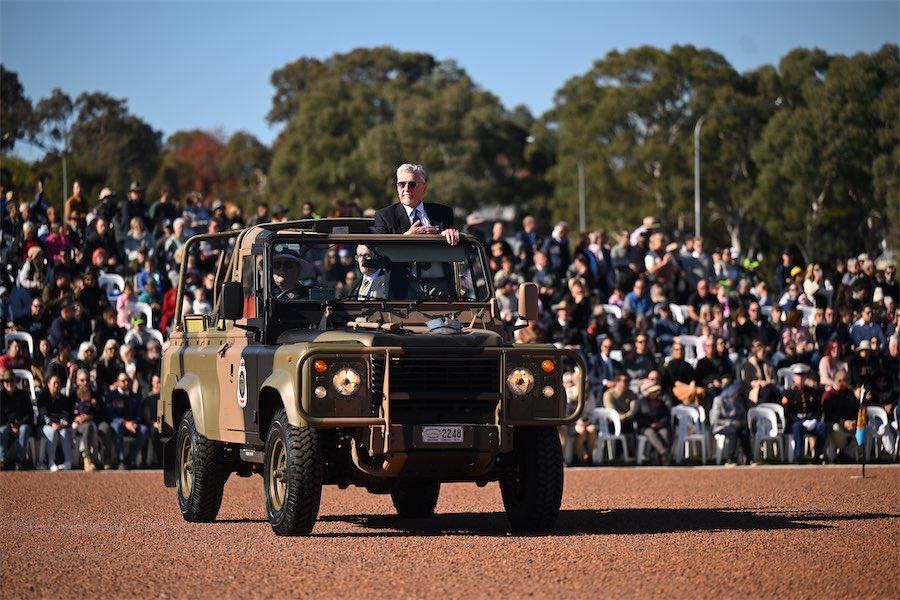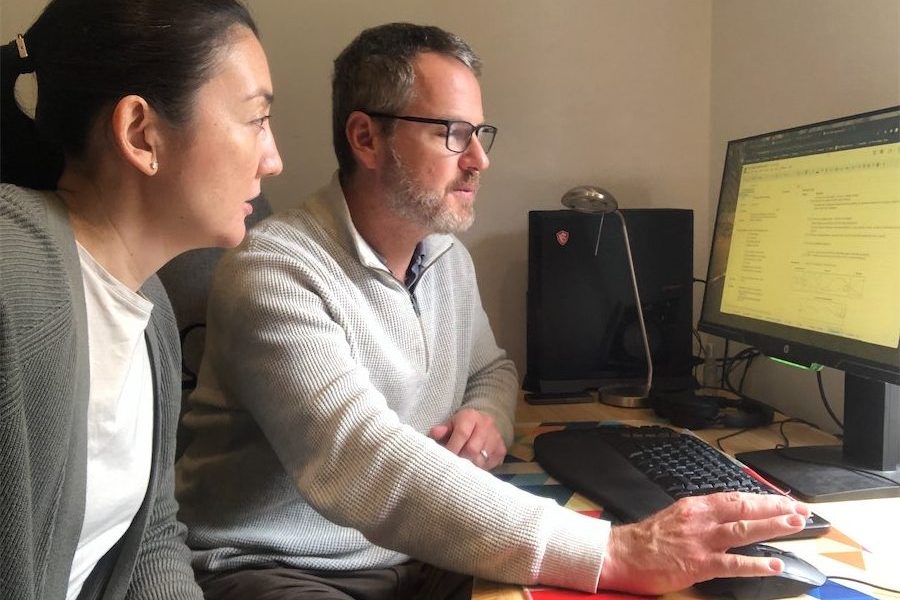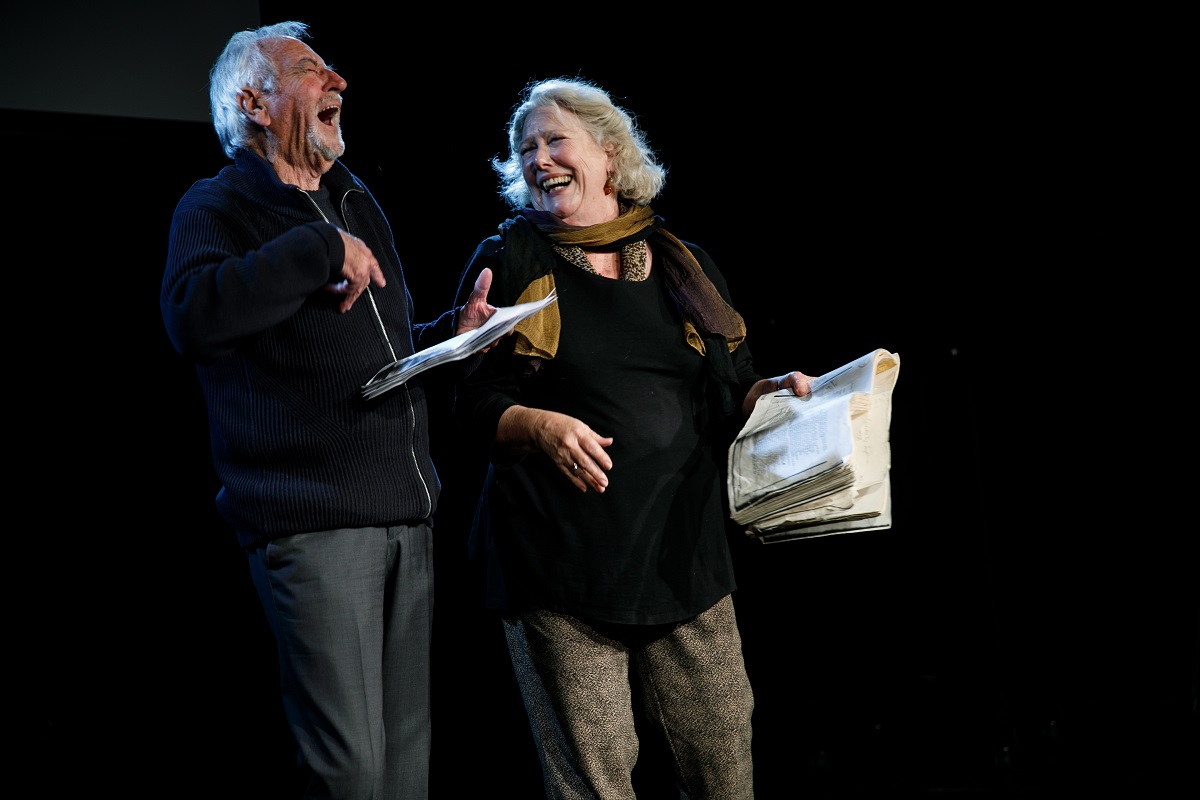
GILLIAN Polack is the author of weird and wonderful fiction that’s been praised for not just being outside the box, but far, far away from it altogether.
Despite writing 14 books, it’s a curious and original sci-fi novel from last year that has seen particular recognition head her way.
“The Year of the Fruitcake” tells the tale of an alien anthropologist inhabiting a human perimenopausal body, all played out in the ACT.
The “out-there” originality of “The Year of the Fruitcake” is just the start. It was recognised with multiple accolades, including the prestigious Ditmar award for best novel, an honour annually awarded for achievement in Australian science fiction.
Gillian had been nominated for the award six times before and could not believe it on learning she’d won the top prize.
“I have a piece of paper telling me I’ve won it and I still can’t even believe it. I’m incredibly excited,” she says.
Several of her stories are set in the capital, something not often seen in popular fiction.
It’s a place she’s called home for 30 years and she’s eager to show a side to the city not seen before.
“I love writing Canberra as a city,” she says.
“Canberra is a palimpsest*. It’s a manuscript, one in which many layers of writing get placed on top of one another as the years go on.
“It has so many layers that I don’t think a lot of people see on the surface, but pay close attention and they’re absolutely there, and they stretch back thousands of years.”
Gillian’s interests aren’t just limited to sci-fi; she has a doctorate in English, history and a masters of medieval studies, and these passions are more than showcased in her other works.
Included are books such as “The Middle Ages Unlocked”, which offers a guide to life in England from the 10th to the 13th century. Another, “Borderlanders” tells the tale of an artist who discovers that her art can produce magic.
According to Gillian, the difference between the futurism of sci-fi and the facts of history might not be as different as we think.
“I’m fascinated by the events that change the world, in the past, present or future,” says Gillian.
“For example, when I finished my bachelors in 1982, the big new breakthrough was computers. It was a changed universe and that’s something I deeply wanted to understand.
“I like to think I don’t have a lot of interests, but rather just one: understanding things.”
Gillian’s passion and knowledge for her craft means she has made regular appearances on panels at conventions not just across Australia, but also internationally.
Her most recent appearance, through Zoom, was at a science-fiction convention held in Boston where she shared her eccentric expertise with fellow sci-fi enthusiasts.
Gillian’s proud to have found success doing what she cares so much about.
“I knew I wanted to be a writer and historian from eight years old,” she says.
“I read absolutely everything I could. I realised quickly that I just had to ask questions about the world. Through writing I can answer them.”
Now all these years later, Gillian has plenty of questions and answers she wants to write about yet. She’s been given two grants by ArtsACT to continue to write and has another ambitious and fantastical novel in the works.
To her, the most important thing about being an author is what it allows her to do for others.
As a Jewish woman and one with disability, Gillian embraces these parts of herself in her writing. She hopes that in doing so she might make those who feel “unseen” a little more visible.
“I use my fiction to test boundaries. ‘The Year of the Fruitcake’ is a challenging, hard read and I wanted it to be that way. I wanted to stop hiding myself,” she says.
“Writing has given me a voice, and if I can talk about or explore these things that people might be dealing with, disability or mental illness or otherwise, then I hope they might just feel a little less alone.”
*”A piece of writing material or manuscript on which the original writing has been effaced to make room for other writing” – “Concise Oxford Dictionary”.
Who can be trusted?
In a world of spin and confusion, there’s never been a more important time to support independent journalism in Canberra.
If you trust our work online and want to enforce the power of independent voices, I invite you to make a small contribution.
Every dollar of support is invested back into our journalism to help keep citynews.com.au strong and free.
Thank you,
Ian Meikle, editor




Leave a Reply